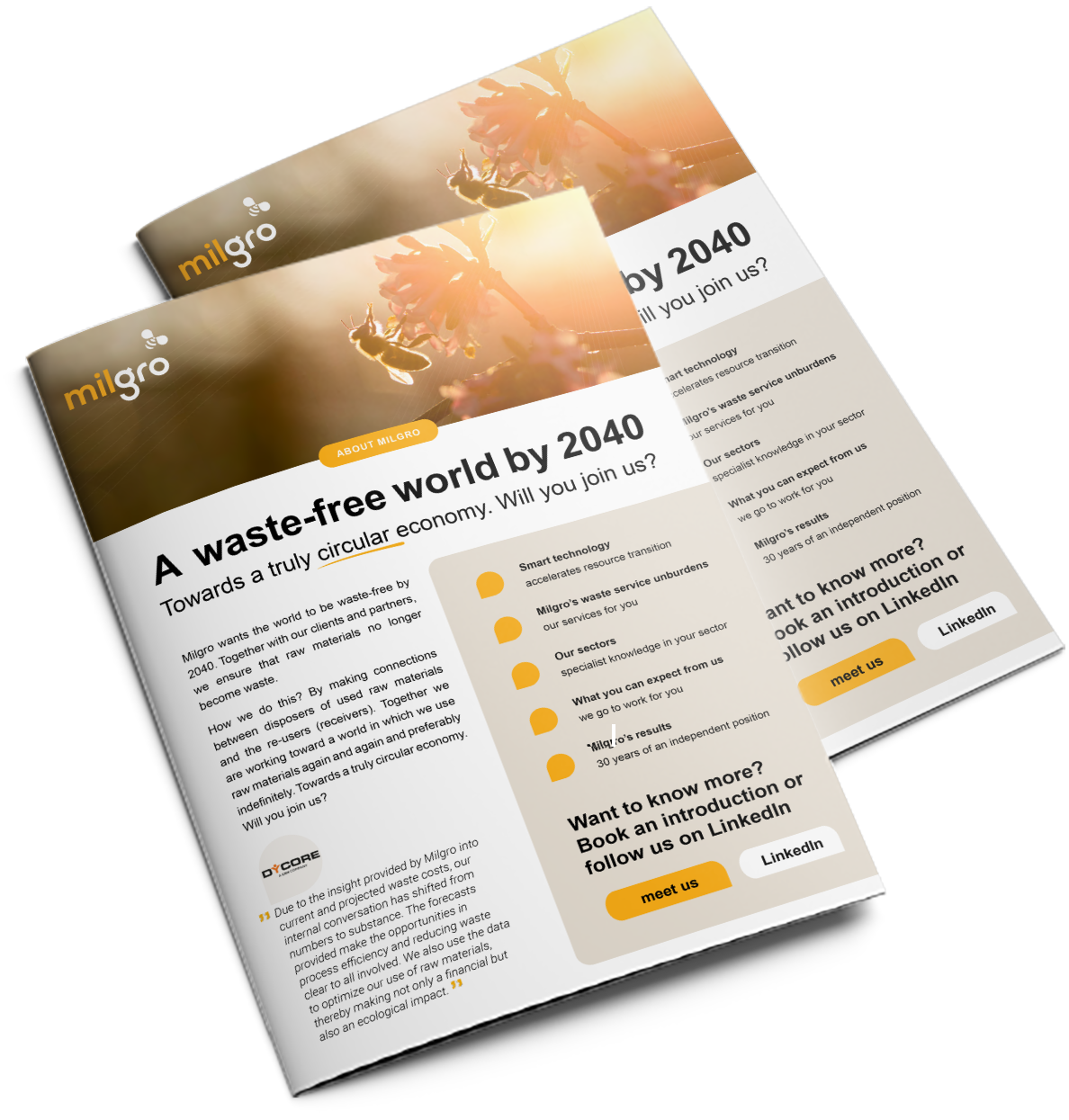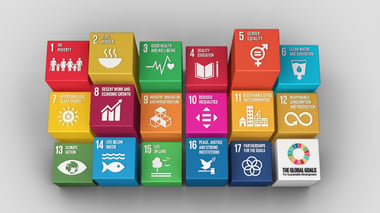Sustainability is an essential factor to focus on in tenders. In this article, you'll learn how to make this theme central to your waste management tender while balancing costs.
While for tenders in waste management the test for sustainability is already firmly established by law, we see that in tenders - which are not subject to procurement legislation - sustainability criteria are also cautiously beginning to play a role. This stems in part from the growing focus on corporate social responsibility (CSR), risk management and the desire to maintain or enhance a positive corporate reputation.
Sustainable procurement and regulations
And European regulations also play a role. With several directives, the EU is committed to embedding sustainability deeply in the procurement processes of organizations; from governments to companies. These directives offer practical steps for integrating sustainability criteria into procurement processes, from the preparation phase to contract management. They also provide useful guidance for companies that do not have to comply with procurement legislation when issuing tenders for their waste management. If only to stay in line with an important new European directive: the CSRD (Corporate Sustainability Reporting Directive).
The CSRD: mandatory reporting on sustainability
The CSRD requires certain companies to report extensively on their sustainability performance. Briefly, these include large companies, medium-sized companies and listed SMEs. Exactly which companies fall under the CSDR obligations and as of when, you can read in this handy CSDR roadmap.
The ESRS E5 is the chapter of the CSRD that focuses specifically on "resource use," which includes waste management. It lists several reporting requirements that deal with resource use and the circular economy. These include incoming flows, outgoing flows and waste and emissions. Thus, the CSRD requires an understanding of the amount and types of waste generated and the method of waste management (e.g., reuse, recycling and incineration).
Also relevant to small and medium-sized businesses
Although many SMEs are currently still exempt from CSRD reporting requirements, they too will begin to feel the impact of this directive. Indeed, large companies will require insight into the sustainability performance of their suppliers in order to meet their own CSRD obligations. This means that smaller companies are also smart to start collecting and reporting on the sustainability of their own waste management in order to (continue to) do business with larger partners.
Steering for sustainability in tenders: here's how to do it
The CSRD highlights the increasing importance of sustainability as a core component in waste management tender processes. This brings us to the crucial question: how can sustainability be effectively integrated into these processes? Both Best Value Procurement (BVP) and Economically Most Advantageous Tender (EMVI) offer valuable methodologies to achieve this goal.
Tender based on BVP and EMVI
BVP and EMVI shift the focus from cost to value creation, expertise and innovation. Whereas BVP selects suppliers based on performance and added value, EMVI emphasizes the offer that offers the best value for money. Both methods are suitable for giving sustainability a central place in tenders. By emphasizing the importance of quality, innovation and sustainability, these methods encourage companies to develop solutions that not only save costs in the short term, but also contribute to achieving long-term sustainable and social goals.
Criteria for sustainability in waste management
Both BVP and EMVI encourage offerors to present progressive and sustainable solutions that provide long-term benefits. For evaluating offerors on sustainability, several criteria can be included in the tender, such as:
- Reducing waste generation: implementing strategies to minimize waste at source.
- Increasing reuse rates and recycling.
- Sustainable waste disposal: employing environmentally friendly methods for non-reusable or recyclable waste.
- Local procurement to reduce transportation emissions.
- Use of circular materials to reduce waste.
- Deployment of renewable energy sources.
- Implementation of an environmentally friendly vehicle fleet.
So with BVP and EMVI, organizations can adopt a more inclusive and holistic tender strategy that puts sustainability at the forefront without losing sight of cost.
Sustainability and cost in balance
In many a tender, the focus is still on finding the option with the lowest price. When sustainability plays a role in decision-making, it is important to look beyond just the initial cost. This is where the concept of Total Cost of Ownership (TCO) comes in. In the case of waste management, we then speak of Total Cost of Waste (TCW).
TCW focuses not only on costs, but also on the quality of the waste management process, waste performance and sustainability (CO2 reduction). This broader view allows organizations to see that sustainable options can also be more financially beneficial, through lower operating costs, less waste, higher quality and greater efficiency. This helps to shift the focus in the tender process from simply the cheapest provider, to the provider that offers the best value, both financially and environmentally.
This helps to shift the focus in the tender process from simply the cheapest provider, to the provider that offers the best value, both financially and environmentally.
A real-world example: Tenders often require predetermined lists of processors and prices per waste stream. This limits the possibility to benefit from flexible, sustainable and cost-efficient solutions. Precisely by using a flexible pool of processors, as Milgro does, the best return can always be realized for each stream, both financially and in terms of sustainability. Linking only waste streams to a price also overlooks the potential of optimizing waste streams. TCW therefore offers a more holistic view of waste management by considering not only direct costs but also environmental impact and long-term savings, making it an essential benchmark for forward-looking waste tenders.
The benefits of sustainable waste management
Making sustainability criteria central to a waste management tender offers companies several benefits, including:
- environmental benefits: reduction of CO2 emissions and waste production,
- cost savings: reduced processing and transportation costs through more efficient waste management,
- improved reputation: a stronger brand associated with sustainability and social responsibility,
- compliance with (future) regulations: avoiding fines by complying with local and international environmental legislation,
- innovation opportunities: encouraging innovation within the organization to find more sustainable solutions.
Focusing on sustainability in your waste management tender will encourage innovation and enhance the company's social reputation. So it's time for companies to see sustainability not as a cost, but as an investment in the future.
Are you ready to future-proof your waste tender?
Tenders that still revolve purely around a price issue and naming the subcontractors involved limit flexibility in approaching cost and service. Focusing on sustainability in your waste management tender encourages innovation and enhances the company's social reputation. And the CFO can breathe easy, too, because sustainable waste management also saves costs. So it is time for companies to see sustainability not as a cost, but as an investment in the future. As a partner in sustainable waste and resource management, Milgro is happy to tell you more about it.
Stay informed
Stay up to date on all new developments? Follow us on LinkedIn or Instagram. Or subscribe to the newsletter. Are you curious about what Milgro can do for your operations and waste process? Contact us









